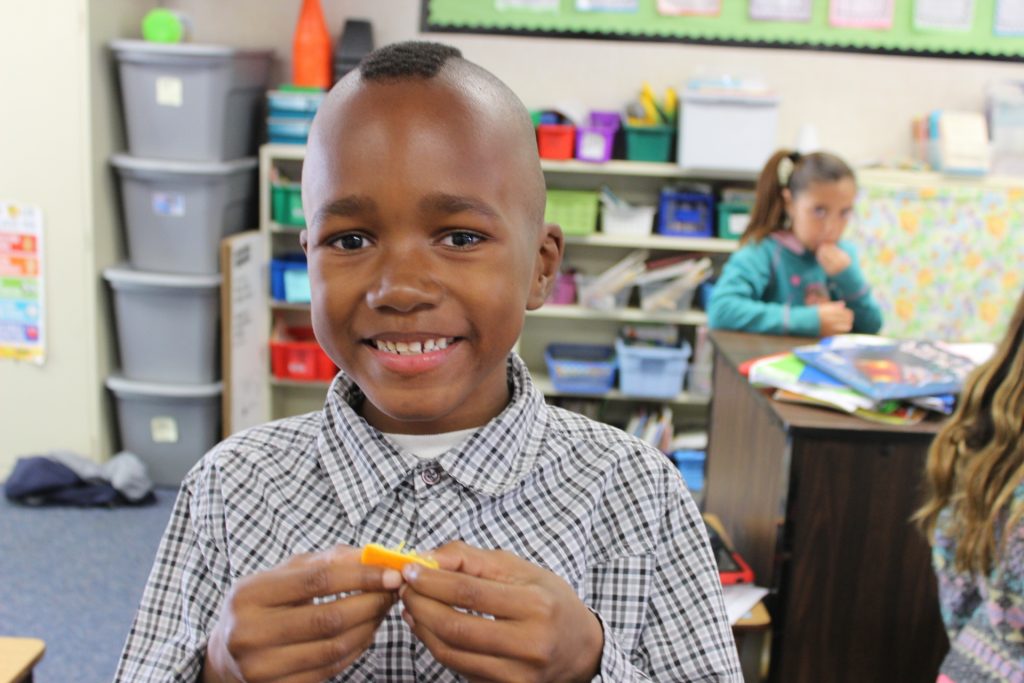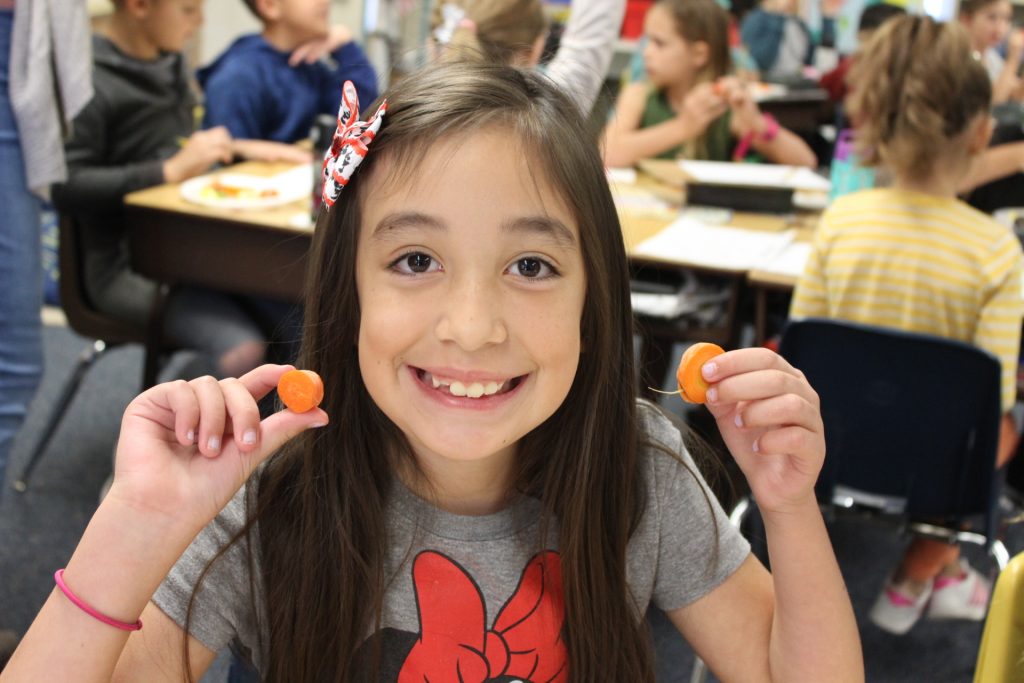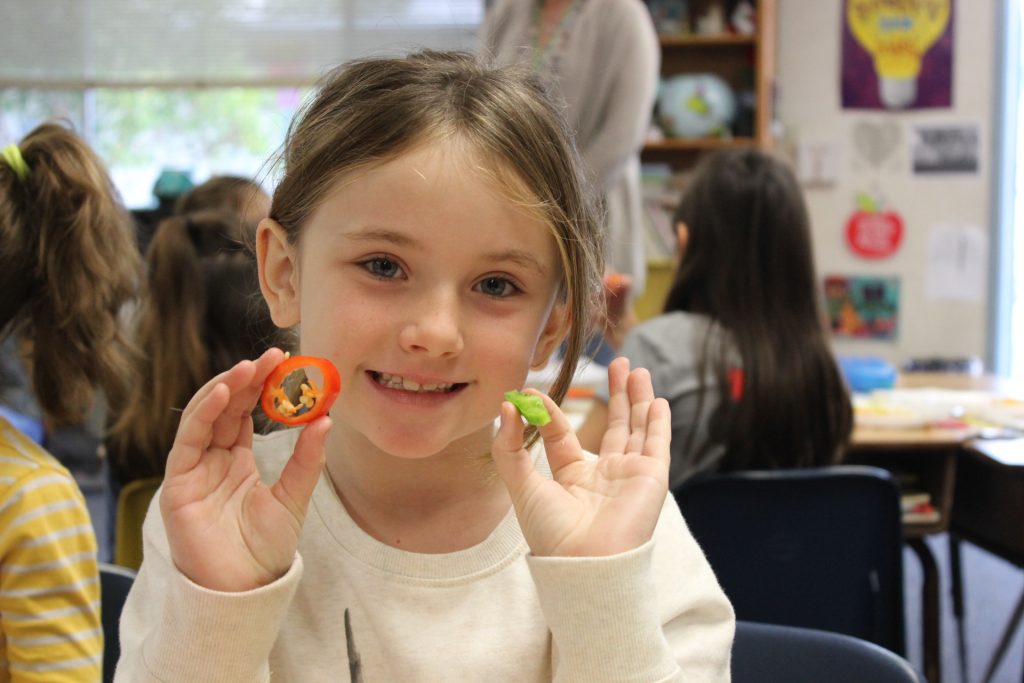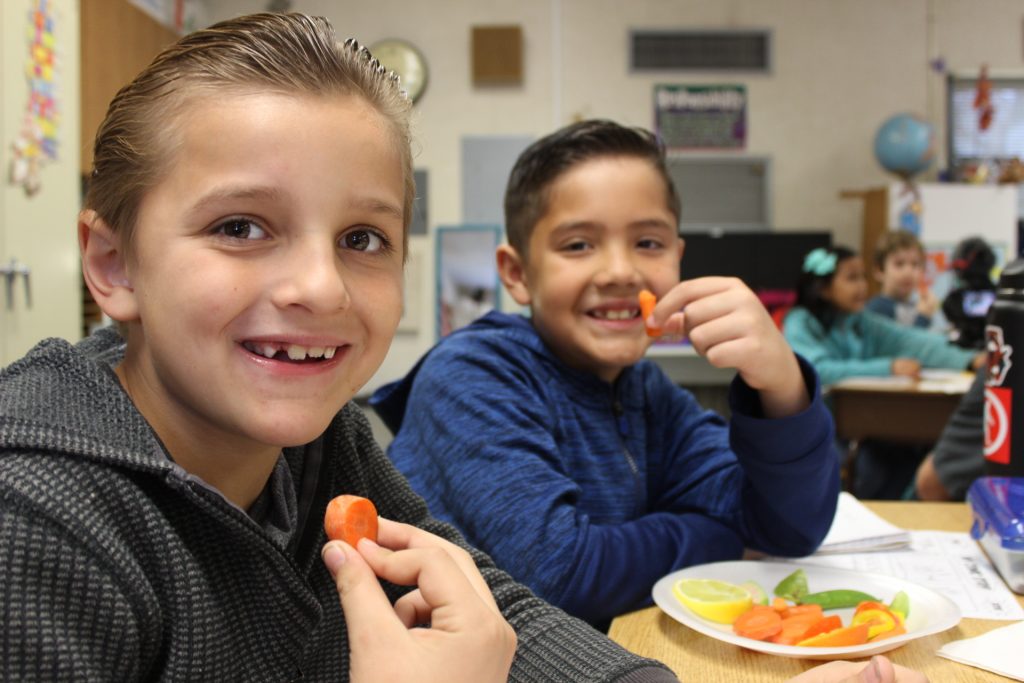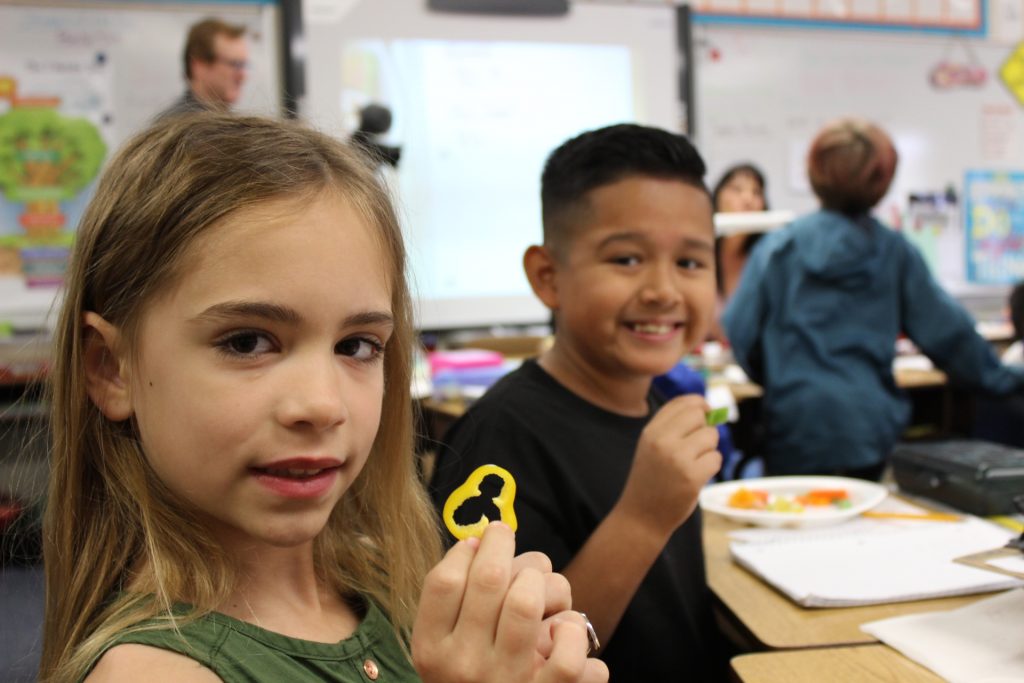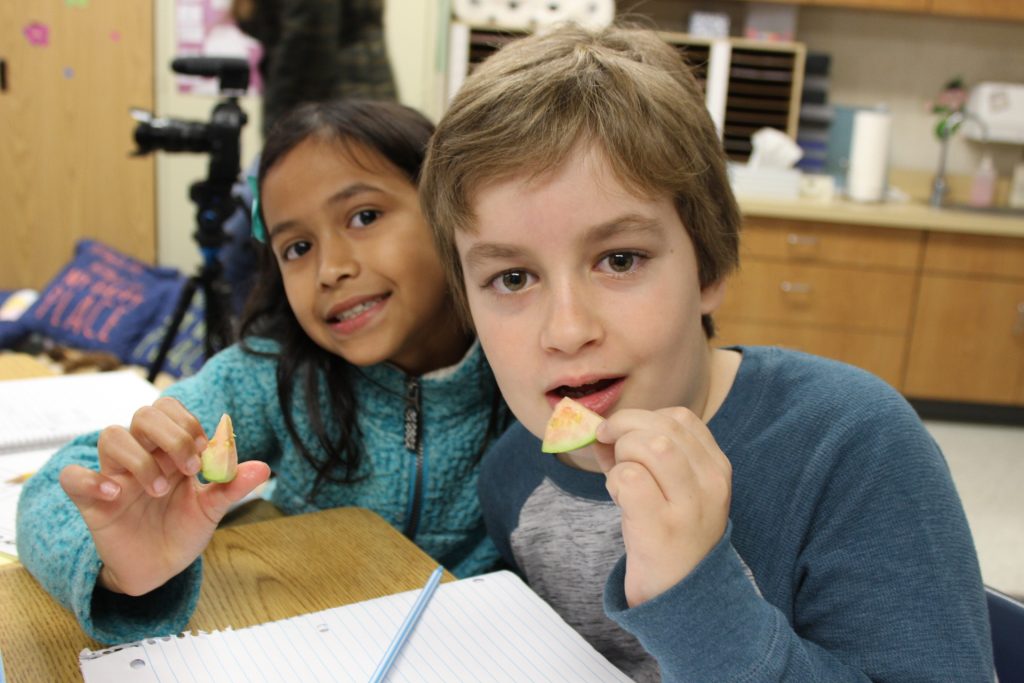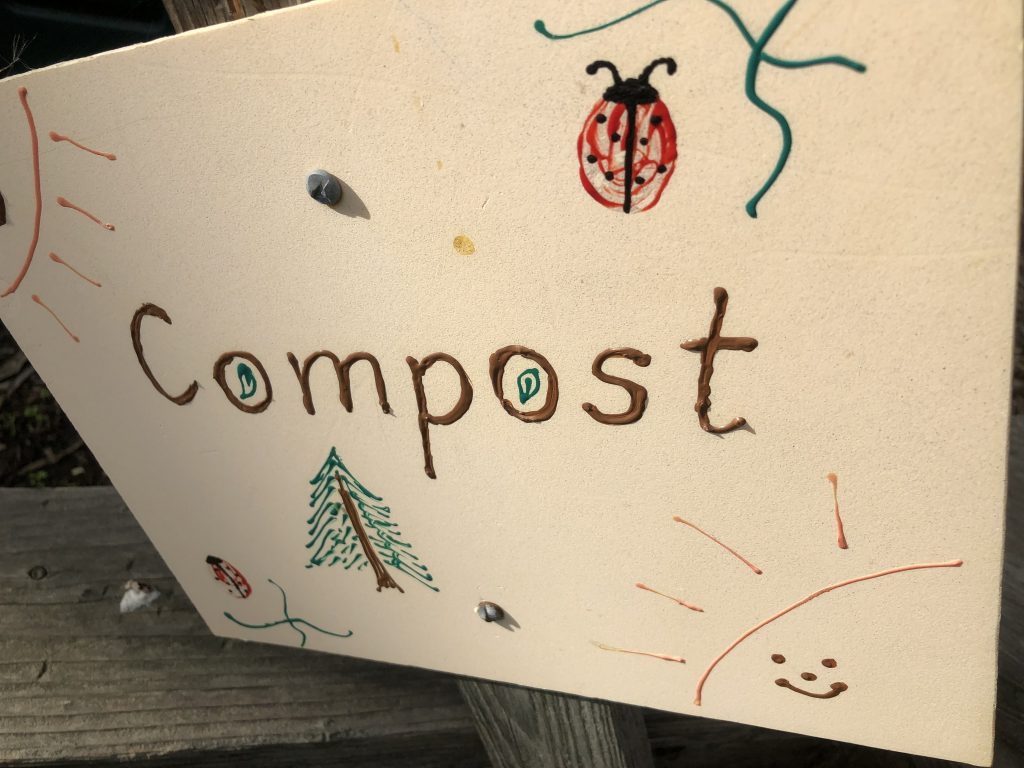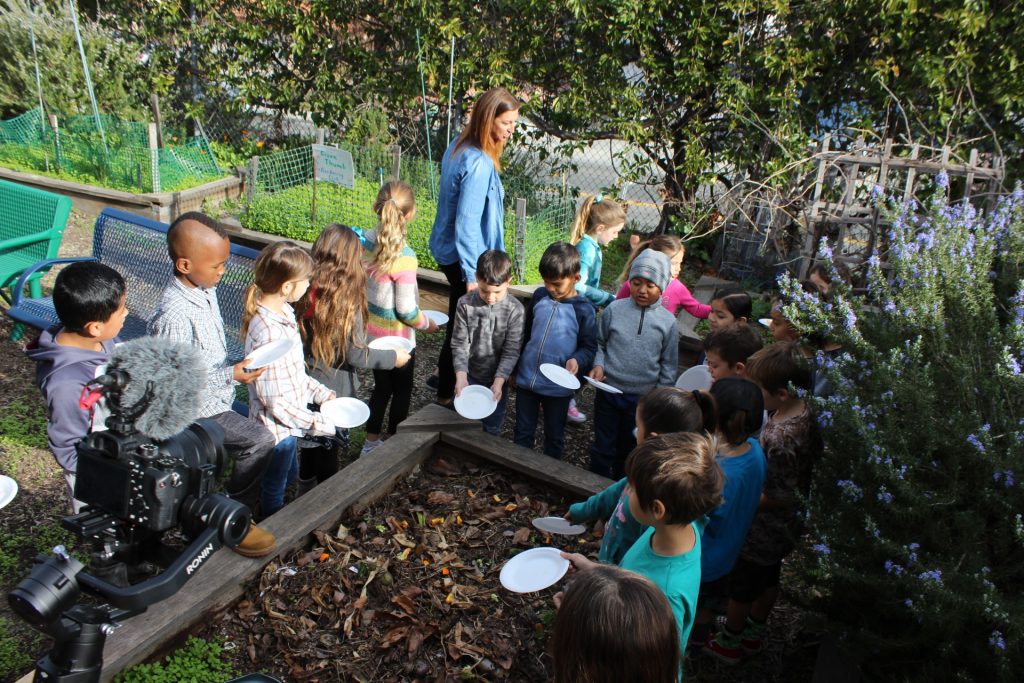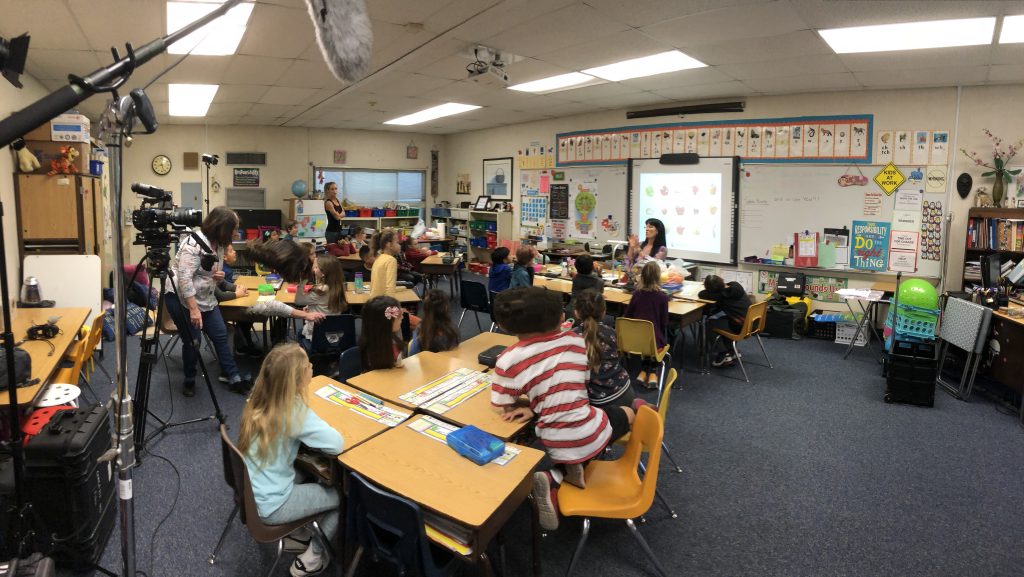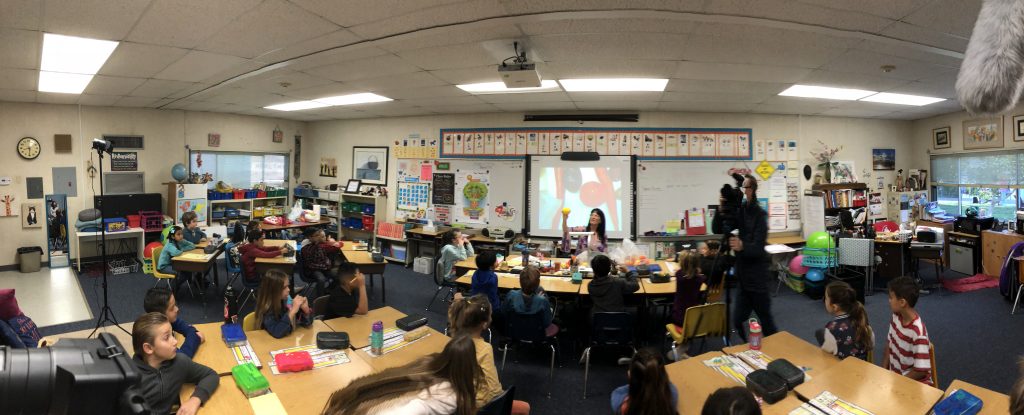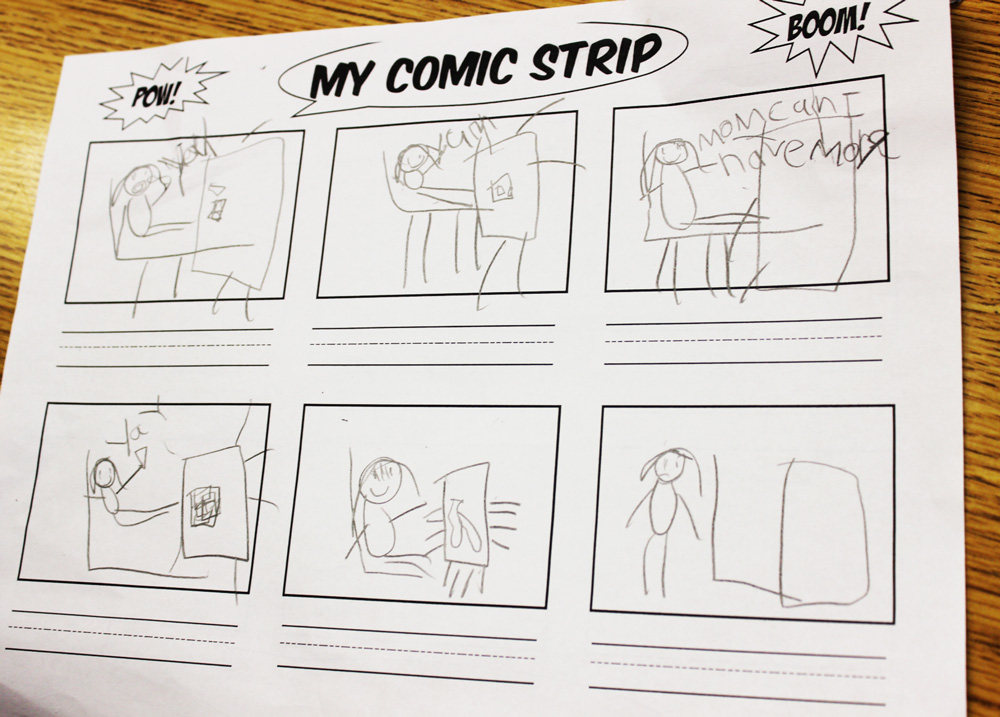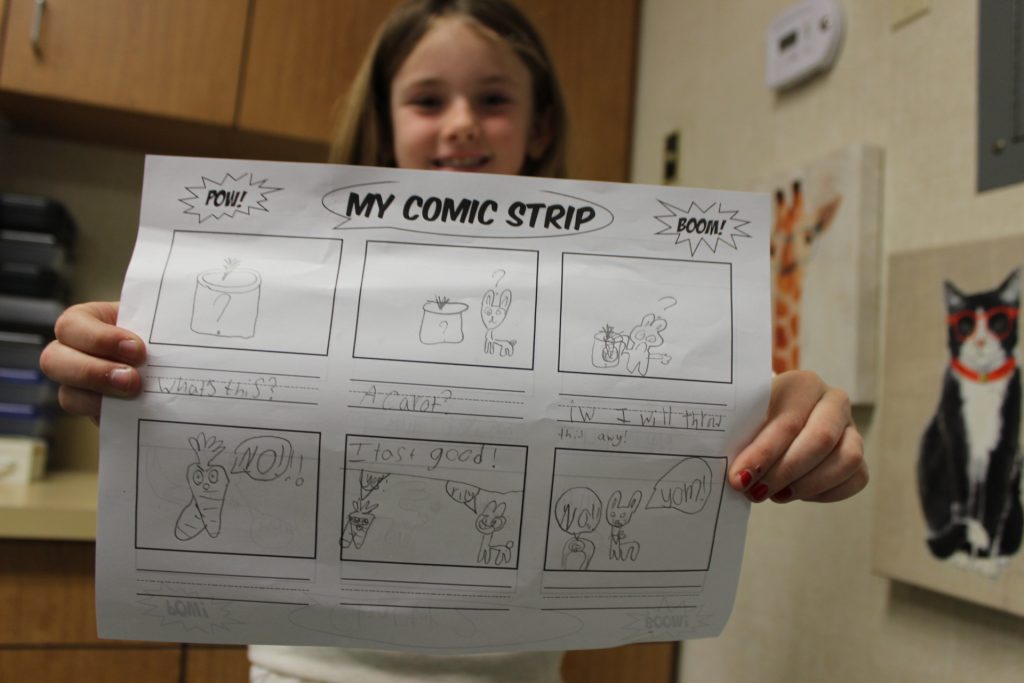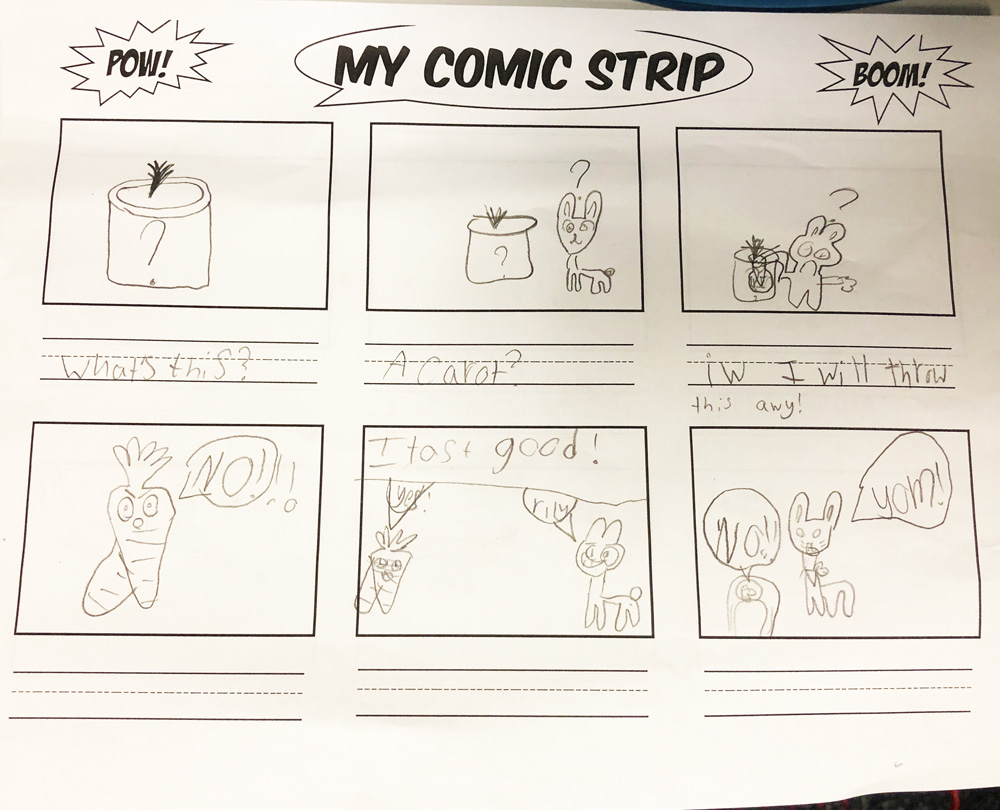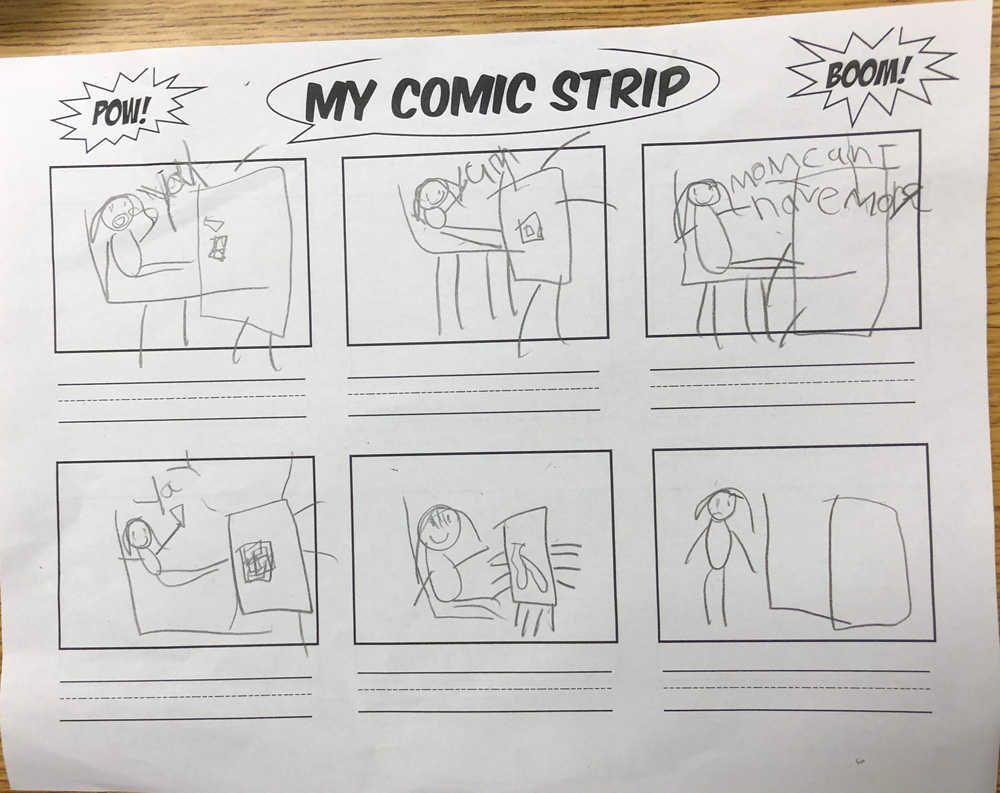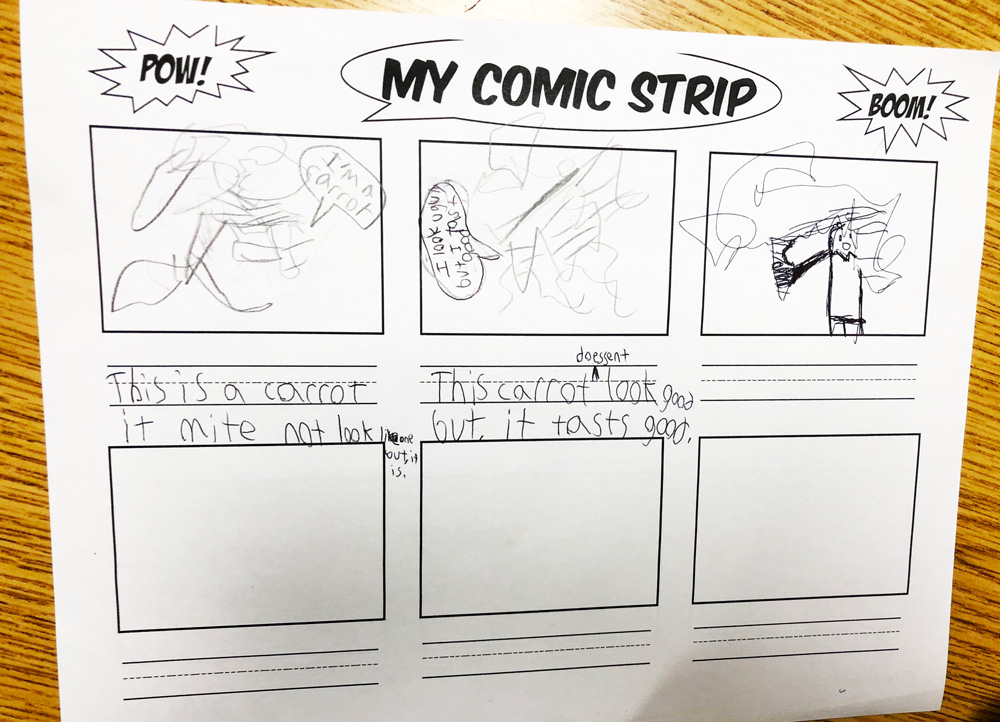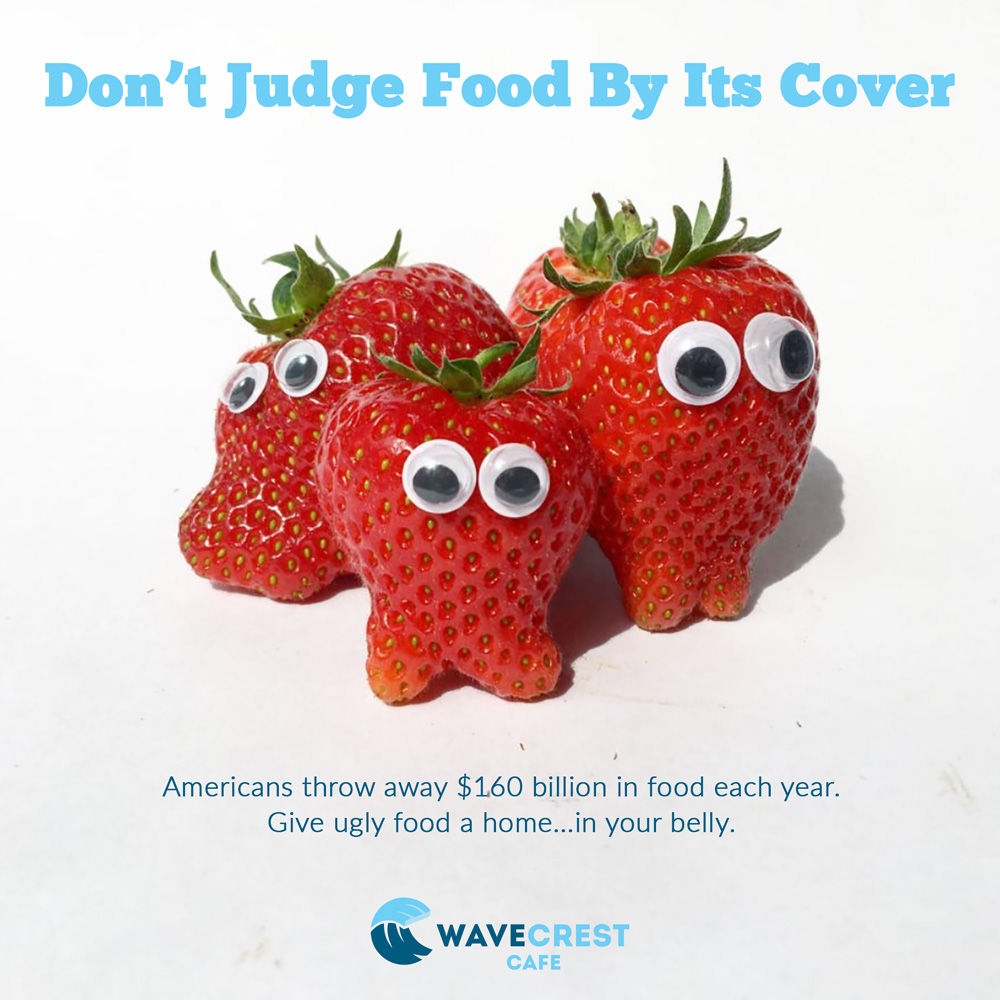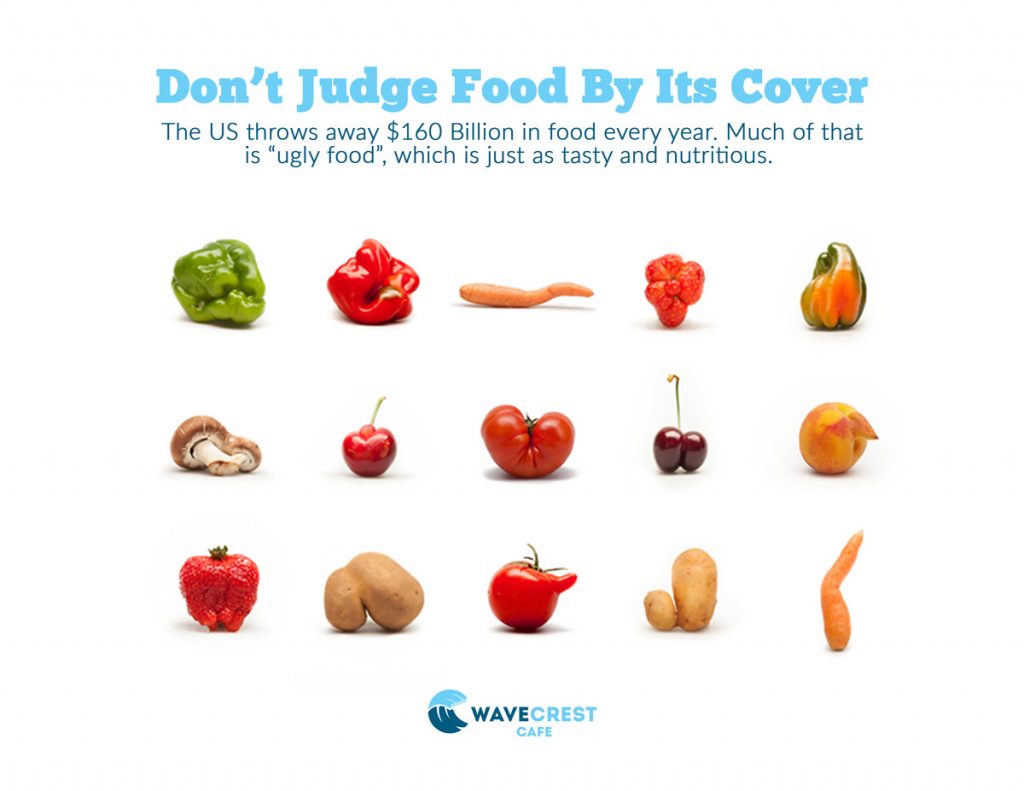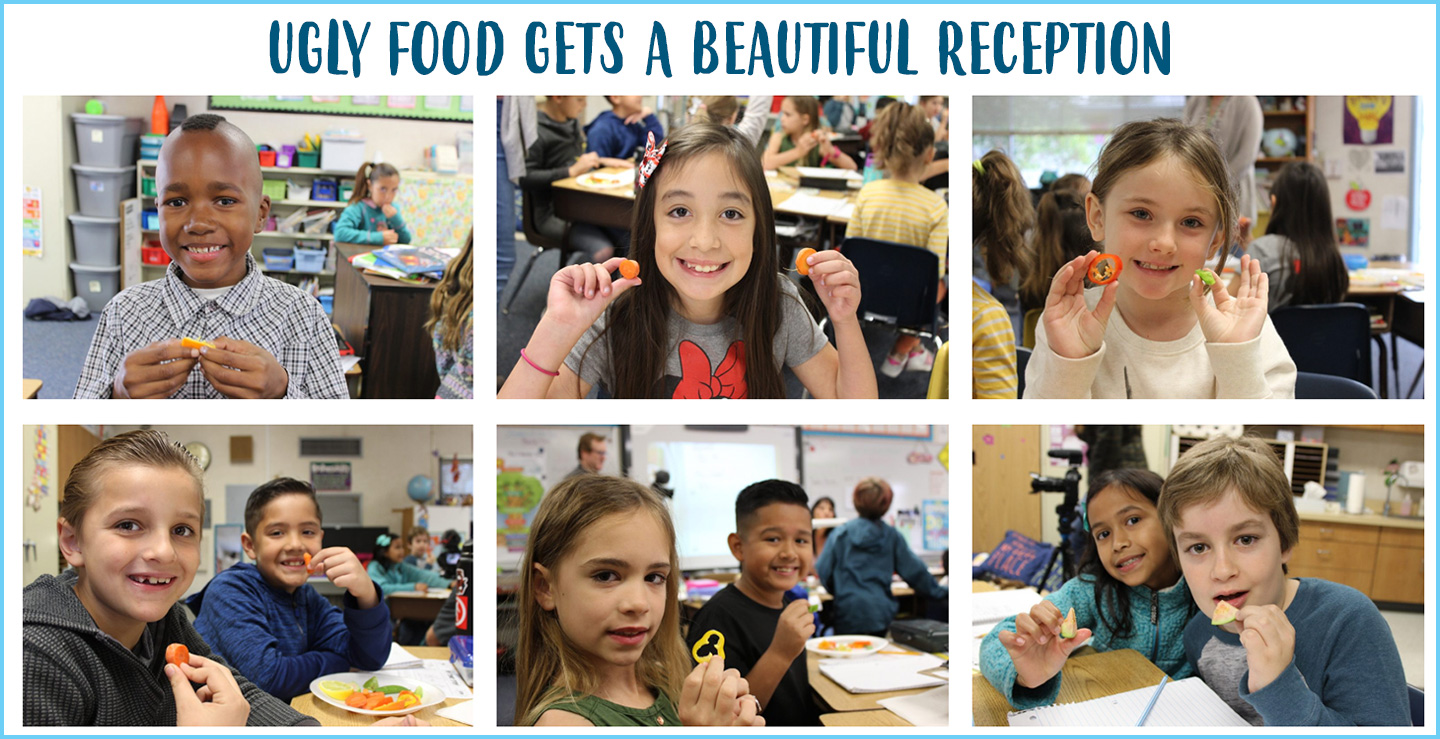
Ugly Food Gets A Beautiful Reception
January 30th, 2019
“If you see ugly food, don’t throw it away, just wash it and try it!”
Those words, spoken by Alamosa Park 2nd grader Madison, were the consensus of a group of kinder – 2nd grade students at Alamosa Park Elementary School who explored “ugly foods” as part of a new curriculum that tackles the topic of food waste in a classroom setting.
Tracy Droste, a 2nd grade teacher, spearheaded a recent week’s worth of activities at the school. “Amy Haessly, the VUSD dietitian, who is also a parent here, sent an email to the whole district saying that there is a pilot program in North America called ‘Food Matters’, and would anybody like to sign up? I happened to take a look because I love food and I do think it matters and I do care about the environment. And as I was reading through this I thought, ‘what a wonderful opportunity for my students and myself to learn about how our daily habits are affecting our climate, and what can we do to help make things better.’”
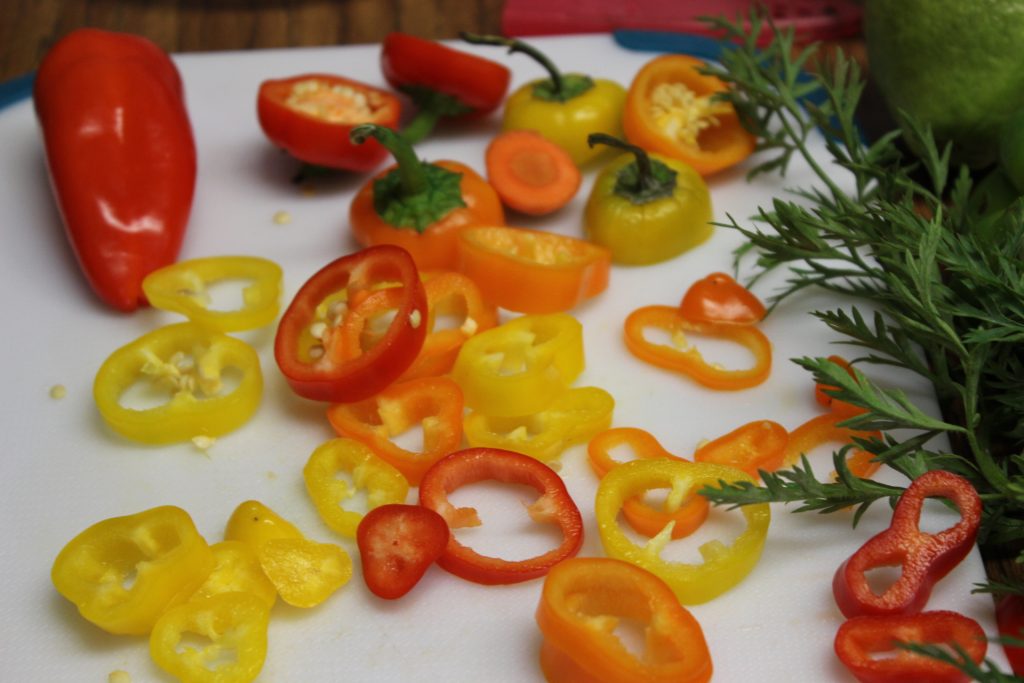
A few of the colorful and tasty foods students were able to sample 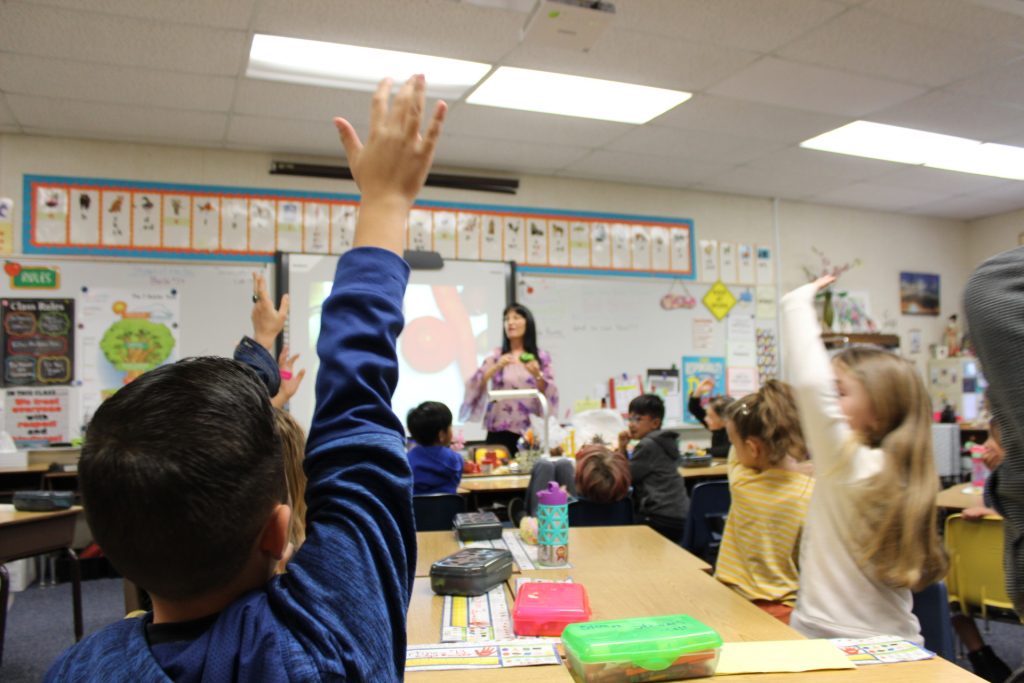
Alamosa Park teacher Tracy Droste has students fully engaged in the lesson 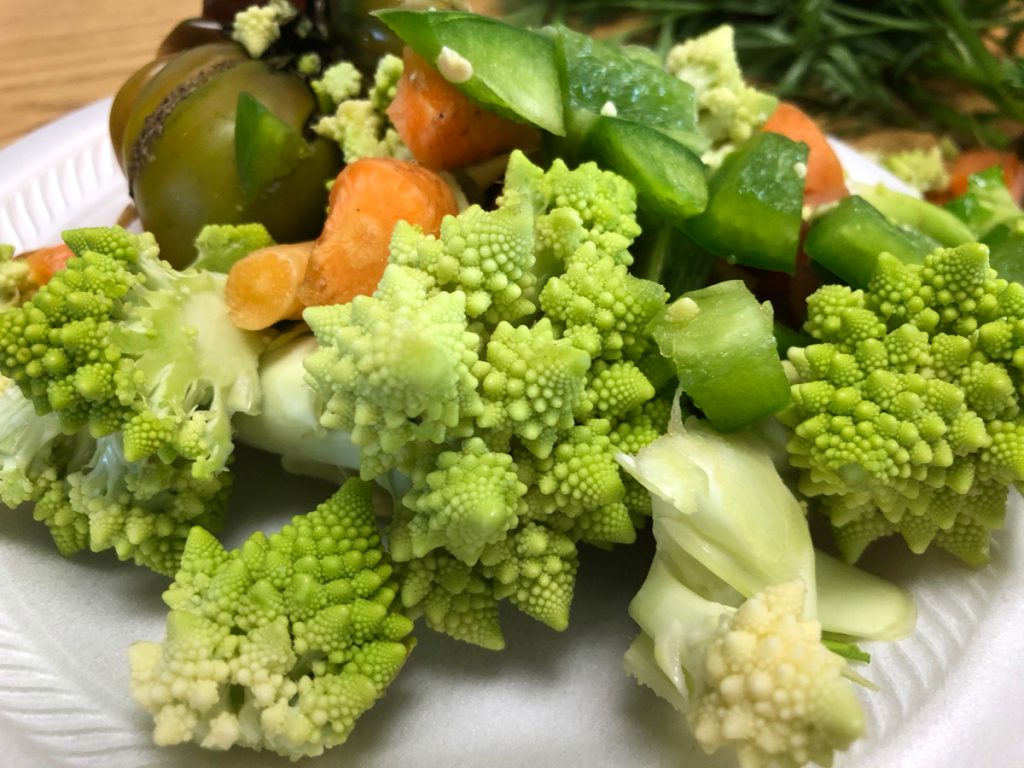
Sample items included brussels sprouts from the Vista High School garden
From there she enlisted a Kinder and a 1st grade class to take part. The developer of the curriculum, excited to see their work in a new setting, even sent a camera crew to document the material being taught in classrooms.
One of the lessons students had was learning how much food is discarded because of the way it looks, even though it has just as much nutritional value. Students got to see first hand how these “ugly foods” look, and what happens to them simply because we have become accustomed to seeing foods in a certain way. That was echoed in Madison’s earlier statement.
In the US alone, it is estimated that $160 billion in food is thrown away every year, and a third of that may be from “ugly food”.
From bell peppers to carrots, passion fruit to oranges, these Alamosa Park students were treated to a tasty bonanza of foods.
By using engaging images and real life examples of “ugly food,” students warmed up to the fruits and veggies, both seeing and tasting how food that looks different than what they’re used to is just as tasty.
Said 2nd grader Logan, “I already know about ugly food because I’ve grown very, very ugly food before [at home]. And sometimes I didn’t eat it, but now I can try to eat things and cut things up into smaller pieces. And then I can take the other pieces and put it in the compost to make soil.”
Indeed, after tasting the uniquely shaped produce, students walked a few yards to the school garden where a compost pile was waiting to be restocked.
The Alamosa Park garden, just steps away from these classrooms, has a full compost pile that is continually fed.
Continued Mrs. Droste, “As a teacher, obviously, it all starts with the kids, because they’re going to learn it, they’re going to develop those habits, and they’re going to go home and teach their families about what they know or don’t know about what’s happening in our daily lives. So I’m excited about the program.”
Students also learned the folk story, Stone Soup, which is a lesson in sharing, and looked at ways that they could all work together to share their food and waste less. That lesson included students making soup themselves using ingredients brought from home, as well as some of the excess ugly foods that they had from class.
The activity, says Mrs. Droste provides a tangible example to the students about what each of them can bring to their lives. “Everyone contributes just a little bit and you end up creating something wonderful by sharing together. I’m sure that they’re going to love it and it will be a huge memory for them and will hit home.”
A camera crew sent by the curriculum developer captures the students engaging with the lesson.
The final piece of the lesson was something that is designed to shift the learners into teachers of their peers. Students were given comic book template sheets and instructed to draw a short comic strip of what they learned about ugly food and reducing food waste.
After the comics are completed and colored, they will be posted across the school. Says Mrs. Droste, “I’m hoping that my class will be able to spread the word to the rest of the campus and student community on the important of not wasting food – not throwing food out, and how we have a compost pile in our own garden that is accessible to us, and being a little more mindful about our daily habits.”
A sampling of the comic strips in-process from the 2nd grade class.

